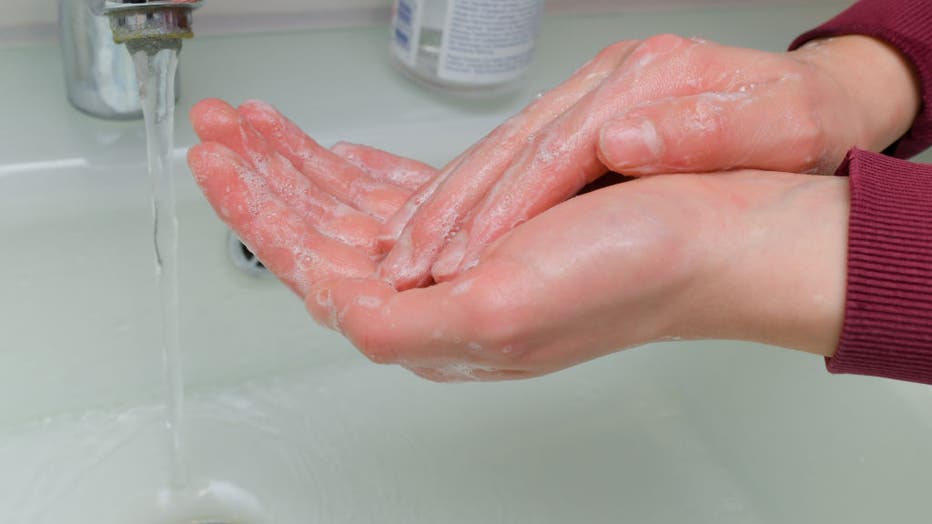Are you washing your hands incorrectly? Proper technique is pivotal to preventing spread of coronavirus
LOS ANGELES - You might not have realized it, but proper hand-washing is a five-step process.
According to the U.S. Centers for Disease Control and Prevention, thorough hand-washing is a pivotal part of preventing the transmission of viruses, including the novel coronavirus that is rapidly spreading around the world.
Coronavirus: Symptoms, testing and how to prepare amid growing COVID-19 outbreak
The two major takeaways from the CDC's guidance on proper hand-washing are: You should wash your hands, and you should wash them often.
But there is more to proper hand-washing than just running your hands under a faucet. If you consistently follow the CDC's "five steps to wash your hands the right way," you can be sure you're not leaving anything to chance when it comes to opportunistic germs that are just waiting for you to touch your face.
The CDC says you should follow these five steps every time you wash your hands:
- Wet your hands with clean, running water (warm or cold), turn off the tap, and apply soap.
- Lather your hands by rubbing them together with the soap. Lather the backs of your hands, between your fingers, and under your nails.
- Scrub your hands for at least 20 seconds. Need a timer? Hum the “Happy Birthday” song from beginning to end twice.
- Rinse your hands well under clean, running water.
- Dry your hands using a clean towel or air dry them.
Simple enough, right? The CDC stresses that the best way to prevent transfer of viruses and germs between humans is proper hand-washing with soap and water. If you were under the impression that water could do the job on its own -- not so, says the CDC.
"Using soap to wash hands is more effective than using water alone because the surfactants in soap lift soil and microbes from skin, and people tend to scrub hands more thoroughly when using soap, which further removes germs," the CDC said.
But is any kind of soap effective? Does it need to be "antibacterial" to work? No, the CDC says.

A girl washes her hands with soap and water. Hand hygiene measures are among the most important infection prevention measures. Personal hygiene, especially thorough hand washing, is particularly important as protection against the coronavirus. (Photo by Patrick Pleul/picture alliance via Getty Images)
"FDA issued a final rule in September 2016 that 19 ingredients in common 'antibacterial' soaps, including triclosan, were no more effective than non-antibacterial soap and water and thus these products are no longer able to be marketed to the general public," according to the CDC.
If you're wondering whether 20 seconds of hand-scrubbing is really necessary, the CDC says research bears it out. It's possible that you could need to wash your hands for longer if you're in a profession that encounters high-risk disease-causing germs, but it's more likely that 20 seconds should do the trick if you're not a doctor, surgeon, or medical professional.
"Evidence suggests that washing hands for about 15-30 seconds removes more germs from hands than washing for shorter periods," the CDC said.
Make sure you're using running water and not water that has been standing in a basin. Standing water can re-contaminate your hands, especially if it has been previously used.
And don't skip the last step: Drying your hands is an important way to protect your clean hands from germ transfer. According to the CDC, germs can jump more easily to and from wet hands.
"Studies suggest that using a clean towel or air drying hands are best," the CDC said.

